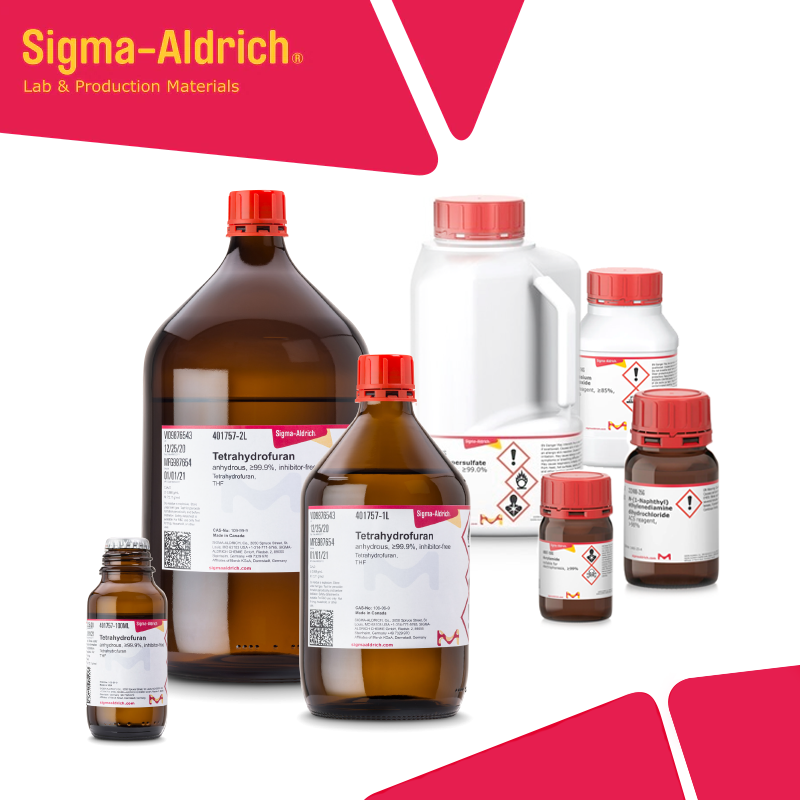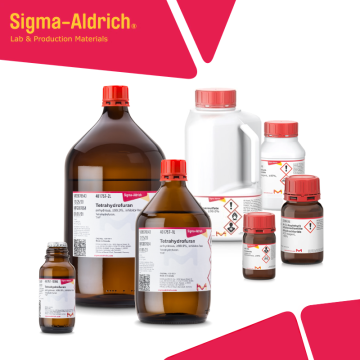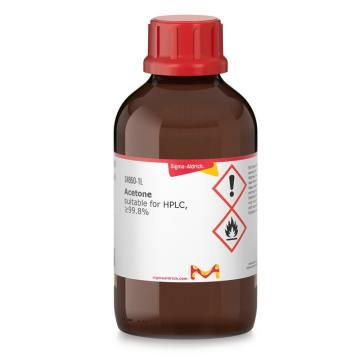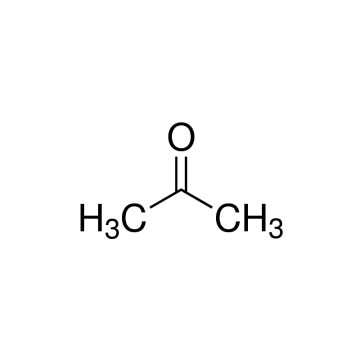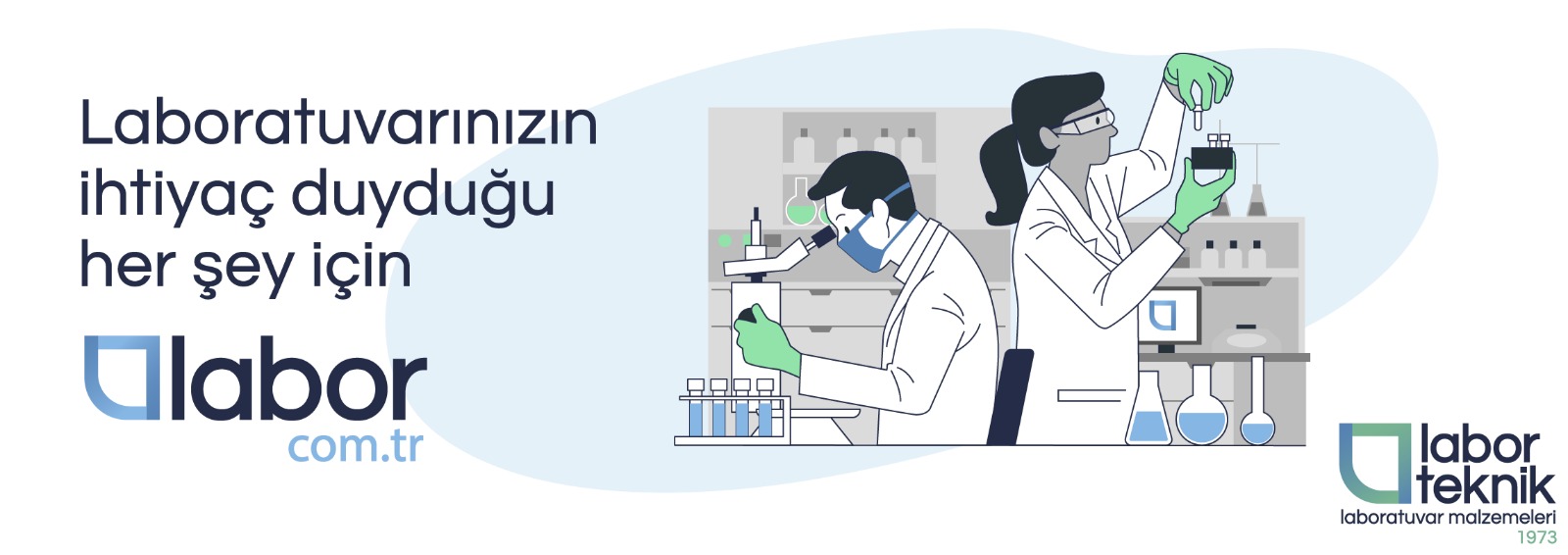Sigma-Aldrich 34850 Acetone suitable for HPLC, ≥99.8% 2.5 L
Kategori
Marka
Stok Kodu
LB.SA.34850-2.5L
Kısa Bilgi
Linear Formula: CH3COCH3 CAS Number: 67-64-1 Molecular Weight: 58.08 Beilstein: 635680 EC Number: 200-662-2 MDL number: MFCD00008765 eCl@ss: 39021201 PubChem Substance ID: 329755060
Bilgi
CAS Number: 67-64-1
2.089,34 TL + KDV
2.507,21 TL
| Sigma-Aldrich 34850 Acetone suitable for HPLC, ≥99.8% 2.5 L |
|
Linear Formula: CH3COCH3
CAS Number: 67-64-1
Molecular Weight: 58.08
Beilstein: 635680
EC Number: 200-662-2
MDL number: MFCD00008765
eCl@ss: 39021201
PubChem Substance ID: 329755060
|

|
PROPERTIES
vapor density 2 (vs air)
Quality Level 100
vapor pressure 184 mmHg ( 20 °C)
Assay ≥99.8%
form liquid
expl. lim. 13.2 %
technique(s) HPLC: suitable
impurities
≤0.0005% non-volatile matter
≤0.002% free acid (as CH3COOH)
≤0.1% water (Karl Fischer)
transmittance
330 nm, ≥15%
335 nm, ≥50%
340 nm, ≥80%
350 nm, ≥98%
refractive index n20/D 1.359 (lit.)
pH 5-6 (20 °C, 395 g/L)
bp 56 °C/760 mmHg (lit.)
mp −94 °C (lit.)
density 0.791 g/mL at 25 °C (lit.)
format neat
SMILES string CC(C)=O
InChI 1S/C3H6O/c1-3(2)4/h1-2H3
InChI key CSCPPACGZOOCGX-UHFFFAOYSA-N
DESCRIPTION
General description
Mixtures of TiO2 (P25) with rare earth oxides (La2O3 or Y2O3) calcined at 700°C or 650°C efficiently causes oxidation of acetone.[1] Its Aldol condensation in vapor-phase has been investigated over MgO promoted with alkali (Li, Na, K and Cs) or alkaline earth (Ca, Sr and Ba) metal ions.[2] It undergoes Aldol condensation in the presence of Mg-Al layered double hydroxides (LDH) as catalysts and Cl- and/or CO32- as compensating anions to afford diacetone alcohol and mesityl oxide.[3] Enantioselective Aldol condensation of acetone with various isatins in the presence of dipeptides (catalyst) has been described.[4]
Application
Acetone has been used in the preparation of 13wt% amorphous poly (lactic acid) (PLA) solution, which was required for the preparation of electrospun PLA membranes.[5] Acetone′s luminesence intensity is dependent upon the solution components. T
he absorption of UV light by acetone, results in its photolysis and the production of radials.
Packaging
View returnable container options.
Other Notes
Important notice
The article number 34850-4X2.5L will be discontinued. Please order the single bottle 34850-2.5L which is physically identical with the same exact specifications.
The article number 34850-6X1L will be discontinued. Please order the single bottle 34850-1L which is physically identical with the same exact specifications.
Recommended products
Discover LiChropur reagents ideal for HPLC or LC-MS analysis
|

